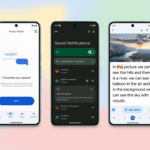Lee Sae Dol, a professional Go player, engaged in a widely-known match against AlphaGo, Google DeepMind’s AI system, in 2016.
Having primarily competed against human opponents, stepping into a game with AlphaGo in 2016 was a game-changer for me. Despite my initial underestimation of AI’s prowess, I only managed to secure victory in one out of our five encounters.
Initially, when Google extended the invitation for me to face off against AlphaGo, I didn’t fully grasp the significance of the event. I perceived it as a simple challenge, assuming an easy triumph awaited me. However, the public nature of the match shed light on its monumental importance.
The sheer brilliance displayed by AlphaGo during our games left me in awe, particularly with the innovative moves it executed. Go, known for its intricate strategies, surpasses the complexity of chess with an astronomical number of potential board configurations. This demands AlphaGo to exhibit creativity alongside computation.
Subsequently, I discovered that experts had projected AI to achieve such capabilities a decade later. Now, commemorating eight years since my encounter with AlphaGo, the remarkable advancement of AI is evident. Go enthusiasts worldwide have leveraged AlphaGo to explore fresh tactics, strategies, and insights within this age-old game.









